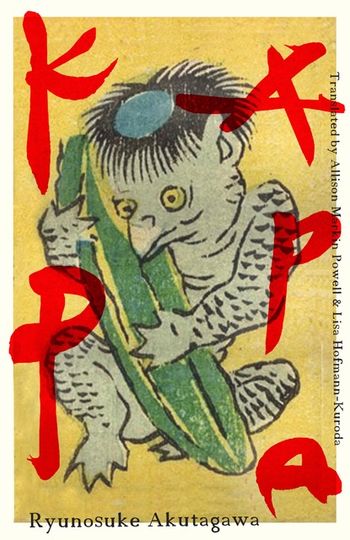The Kappa is a creature from Japanese folklore known for dragging unwary toddlers to their deaths in rivers: a scaly, child-sized creature, looking something like a frog, but with a sharp, pointed beak and an oval-shaped saucer on top of its head, which hardens with age.
Akutagawa’s Kappa is narrated by Patient No. 23, a madman in a lunatic asylum: he recounts how, while out hiking in Kamikochi, he spots a Kappa. He decides to chase it and, like Alice pursuing the White Rabbit, he tumbles down a hole, out of the human world and into the realm of the Kappas. There he is well looked after, in fact almost made a pet of: as a human, he is a novelty. He makes friends and spends his time learning about their world, exploring the seemingly ridiculous ways of the Kappa, but noting many—not always flattering—parallels to Japanese mores regarding morality, legal justice, economics, and sex. Alas, when the patient eventually returns to the human world, he becomes disgusted by humanity and, like Gulliver missing the Houyhnhnms, he begins to pine for his old friends the Kappas, rather as if he has been forced to take leave of Toad of Toad Hall…


